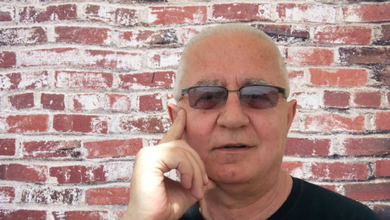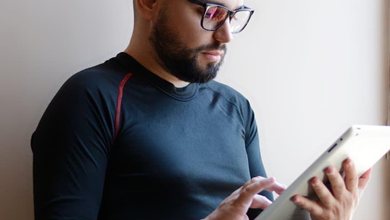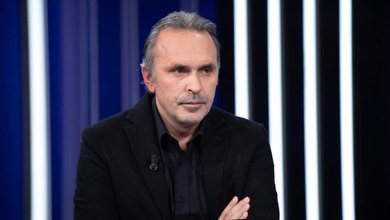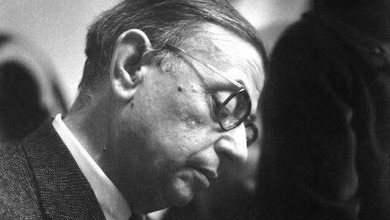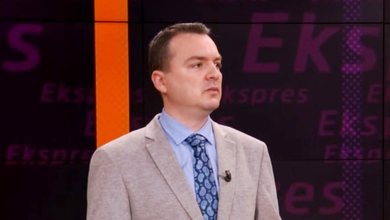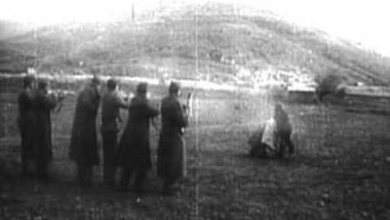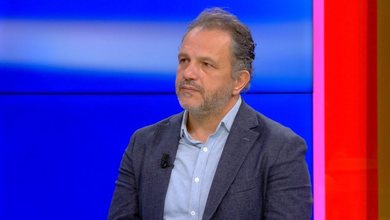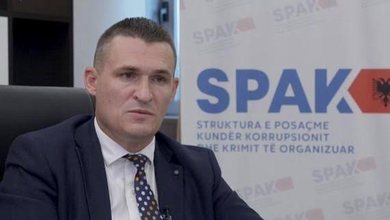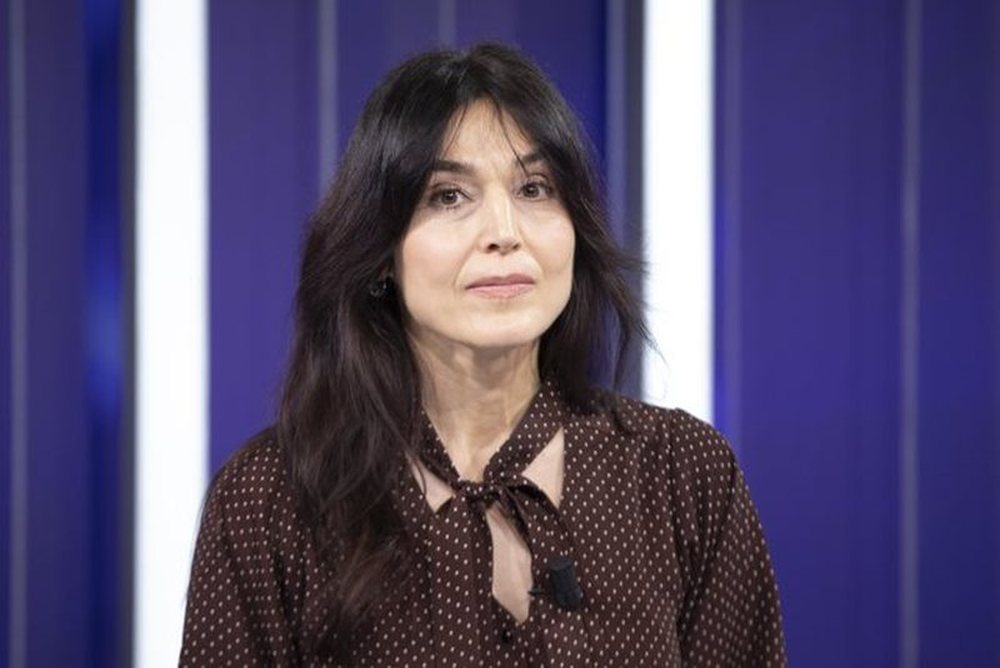
By Elsa Demo
The people I feel like hanging out with these days are unemployed. We get along well, without words, we feel each other's presence, we laugh, with and without irony, even bitterly.
I feel like a brotherhood in unemployment. We have created the joke "I have a lot of work", which we also use when it comes to peeling a pomegranate. It is the season of pomegranates. Peeling this fruit, crushing it grain by grain, takes so much time that you can think about your life like a movie, yesterday and today - We think in eternity, but we move slowly through time, says Oscar Wilde.
I say that I am experiencing a side of the unemployment situation that inspires fear. A person can slip into the night of the ocean's depths or disappear into a space where they no longer have the weight of their body, of their life.
But it could be fear for other reasons, mainly for these other reasons, unemployment, because one loses some of the privileges that work gives, especially when it is a job with material benefits and comfort that guarantees social status.
Ultimately, you can't be afraid of what you're going to become, the child doesn't live with this fear, and at this point, there's something to be learned from children. There's no reason to be afraid of what you're going to become, just as there's no reason to be proud or ashamed of what you once were. This mysticism of fear has several sides that the state of unemployment gives you the opportunity to visit, to enter and exit areas that comfort closes or makes forbidden areas of communication.
I want to say that, beyond the fear that defines aspects of our lives, I believe in the ethical evolution of human character and this is something measurable, that can be proven daily, unlike the optimism and positive energy that is blared out anytime and for anything, as an engine of happiness, even introducing diseases in the middle, like cancer for example, for ethical lessons on life and what we should think about.
I can call it a coincidence that these stories are being told during Breast Cancer Awareness Month, when Public Relations, television, and other mass forms of communication are using inspiring and optimistic stories from cancer sufferers and survivors as an ideological machine. And that bothers me.
Boredom is my other visitor these days, which I appreciate. Boredom is an effective disinfectant against anxiety, against the urgency to definitely deal with something in life, in order to prove that you are, that you are visible, to be seen; boredom is against the urgency to deal with something that does not belong to people, such as, for example, the life of another and their illnesses; boredom is against realities that are created to be sold as therapeutic paradises.
Cancer, since we are here, has been turned into a divine horse for another possible life, where, you were what you once were, after cancer you become a better person. Becoming a better person is a deceptive ideology with wide circulation, influence and high credibility. “…it is a piece of unscientific fraud”, Wilde would say. Yes, you can “become a deeper person, the privilege of those who have suffered”, due to the fact that pain, boredom, unhappiness, unlike pleasure, happiness, positive energy, and other narcotics, does not wear a mask.
Today, the formula is working: talk about the disease, not the system, talk as if you were talking about a resurrection from a kind of death, which has come to make you aware of your life, and you then become a spreader of good news, you become an evangelist. If a disease did not enter the body for your good fortune, what would happen to the conscience?
My sister doesn't understand this, even though within two years she has undergone first a lumpectomy, then a mastectomy due to aggressive recurrence, radiotherapy, chemotherapy, immune therapies, she doesn't understand the fear of death, nor the disguises that the disease wears on home screens and pocket screens.
I see it from afar, sitting under the tree in the inner courtyard of the Oncology Department. It is the tree with the most branched trunk. One day I climbed thoughtfully through its thin and smooth branches and heard a woman from Miredita say that, from the other side of her country, this tree is called “foileta”. Its berries are as small as peas, they turn black when ripe and are eaten.
The public space of October is a pinkish space staged as if by the hands of Greta Gerwig (Barbie). The stories that dominate, prevent other personal perspectives on reality, for example, the perspective changes for the same surgeon in Oncology.
After the suspension of a surgeon and the investigations that were carried out against a network of managers two years ago at this hospital, we had to look for another doctor to continue the therapy. I was waiting to ask for clarification from a surgeon whom I would later see on the screens advertising the health service in a private clinic. He is the same one who, after performing a double mastectomy, had implanted pubescent breasts in a patient on the verge of middle age. She thanked him publicly for this in her book, now a bestseller. I was waiting for clarification, and I listened to him, held in the half-open door of the surgery room, for him to finish the conversation about the Shit Zu race, a little bit of a mischievous and quarrelsome as a race, while the lines of patients for long hours in the airless corridors, inhaled each other's carbon dioxide.
In some cases, doctors have told me: you are a journalist, use your name, use your profession, move your figure, that's it... They know that the chain of medical service can be oiled and function in one link, but it gets stuck in a hundred others. I didn't do it. Our family has been put in line like the others, has followed the hierarchy of secondary and tertiary hospitals, without having the opportunity to choose the doctor, the laboratories or the places for therapeutic tourism in the West.
The control over the reality presented to the public, which is a control and management by both the state, the media, and by influential individuals and groups - influence means control and control means persuasion - reduces reality, which is much broader and more subjective, depending on the cultural level, money, power, and above all, depending on conscience, which is also kept sober by boredom.
Boredom helps you understand your powerlessness, and it doesn't make you weak or unhappy.
Unhappiness is another visitor that I await like the lymph of a communication code with the world, just as this scene has a communication code. The actor speaks, the audience listens, absorbs, thinks. When this session ends, the functions are reversed. The actor is silent, rests, and the audience jumps into life, into action.
In a theatrical piece, “Medea,” for example, where a woman is branded as a stranger and exiled as a murderer, the audience does not need to learn how to deal with their own darkest emotions, but to understand that when a person suffers collective punishment with indifference and humiliation, they should ask questions about why society made that decision.
Then it can be said that the actor and the spectator are in dialogue, the individual and society are in communication. If this condition is not met, the parties are spinning in a vacuum, they are isolated and an abyss is created in the middle. I have learned this from the theater and certainly from life, from people I have known or not closely, through their lives and public works that have been art, writing, civic engagement.
My ethical and not only ethical role models – and excuse me, here I am repeating what I may have said before – were people who under the dictatorship were called scoundrels and knew what awaited them: shunned, excluded, removed from their profession, punished with solitary confinement, declared insane, sentenced to prison. When they came out of there, no one addressed them with a mea culpa. Society has not understood what it has caused them, leaving the poison and hatred among us to fester. It is no longer the ideological dictate of an isolated state, it is the dictate of an open state that does not know how to control freedom, but has become a master of controlling image, unhappiness, boredom. Criticism is declared deviant, whoever thinks differently is called “unhappy”, “sick”, “there is something wrong with him/her”, and whoever praises and maintains the status quo is the warm hand that society needs.
Decide for yourself whether unemployment, boredom, and unhappiness should be left outside the door, or invited inside.
*Speech given for “Voices in the Media” at the National Experimental Theater, October 29, 2025


